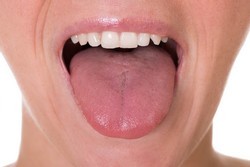The neurochemistry behind reward and punishment
Behavioural responses to reward and punishment drive learning, skill acquisition and socialisation. Neuroimaging methods have provided important information on the neural network underlying reward processing. Studies have shown that the reward value of food and non-food stimuli are reflected in the activity of the orbitofrontal cortex. However, the mapping of these appetitive stimuli remains elusive. During the EU-funded REWARDING THE TONGUE (Carmelo M Vicario reward and punishment: what somatosensory intra-oral activity can tell about the value of goods) project, scientists investigated the hypothesis that signals to the midbrain regions associated with reward/punishment originate in the tongue and especially in intra-oral muscles. To investigate this, they recorded the evoked potential from the tongue of several groups of participants that had experienced various types of reward/punishment outcomes such as monetary win and loss, or exposure to attractive or aversive outcomes. Results suggested that excitability of the tongue is sensitive to aversion-related experiences including social and moral disgust. However, researchers observed no effect in relation to reward outcomes with the exception of craving. This direct connectivity of the tongue with the reward system in humans resembles that of non-human primates. Furthermore, project results provided interesting insights on the current debate about the origin of morality and suggest a potential evolution from sensory (primary) disgust. Importantly, the existence of a functional link between the tongue area and the reward system may have clinical implications and could be utilised towards the understanding of pathologies characterised by a deranged reward system such as eating disorders, pathological gambling and alcohol abuse.







